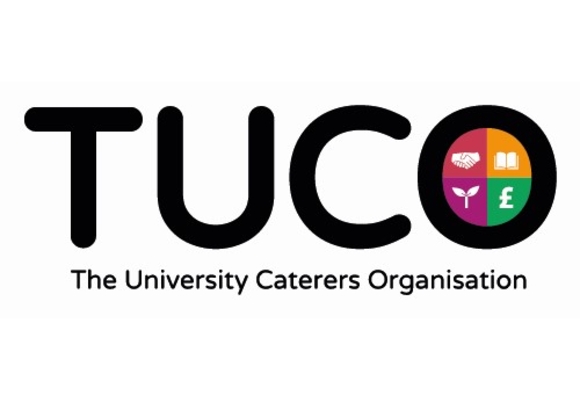Copy from TUCO's May Magazine.
Bath Spa University is currently operating an online delivery food service providing essential provisions for those staying in its self catered accommodation. It has also donated stock to the NHS.
Bangor University is seeing its sports centre being transformed into a field hospital which the catering team will support by preparing meals for both key workers and patients.
There's been a range of responses from the University of Cambridge and its colleges. Staff at Homerton College have emptied their fridges and donated food to the Cambridge Foodcycle Project while Madingley Hall is donating food that would have gone to waste to Jimmy's Night Shelter. Students who are still at Newnham College have formed a volunteer group to support vulnerable local residents including delivering medicines from the local pharmacy to those who can't leave their own homes. Robinson College is donating food to vulnerable groups, including most recently to C3 Church in Cambridge which is organising distribution to those in need. Anglia Ruskin University has donated PPE from its Cambridge Science Centre to Addenbrooke’s. St John's is still open for hot takeaway meals, for students numbering around 130, including some medics, Fellows and some staff. The catering team is also providing a local shelter with items such as chocolate brownies on a regular basis.
Coventry University is delivering mindfulness and compassion sessions to NHS staff who are working in frontline roles to combat the COVID-19 outbreak. The first session was held on Monday 6 April for paramedics and nurses who are undertaking the Pre-Hospital Emergency Care course, a top-up degree course designed for qualified clinicians. The session focused on showing participants how to calm the nervous system through meditation and breathing exercises. It has also stepped forward to assist the NHS. Around 50 paramedic students who have previously worked with West Midlands Ambulance Service on placements have joined up once again with ambulance staff at the service’s request to help bolster their numbers during the coronavirus outbreak. And the university has donated vital PPE including goggles and gloves, to public health officials in Warwickshire to distribute to care workers too.
A team of technical staff at the University of Hertfordshire has produced a batch of hand sanitiser to bolster NHS and social care supplies. The sanitiser has been donated to the Hertfordshire County Council team coordinating the COVID-19 response effort and will be used to help keep key workers safe during the pandemic. Another team has produced face shields using 3D printers in response to demand from NHS and social care services and university scientists have also joined the global consortium in rapid response to COVID-19.
Kent Hospitality at the University of Kent has donated over 500 items to Dover Foodbank. With only one of its 10 catering outlets currently open on the Canterbury campus, Kent Hospitality decided to donate their surplus stock to the foodbank to ensure the supplies went to those in need. Donated items included canned drinks, crisps, flapjacks and toilet rolls.
At Lancaster University the hospitality team is working closely with an organsiation called Eggcup and has so far donated around £3k of fresh food and drystore goods with more to follow from its freezers. Eggcup will cook this food to provide hot meals where needed. The university is also working with the Lancaster Resilience Forum to support in a wide range of ways from PPE to accommodation for NHS/emergency workers.
Leicester Services Partnership (LSP) at the University of Leicester are working hard to lend a helping hand in the fight against the virus by feeding the community through their first community kitchen. Members of LSP staff are providing a key service by sorting through stock close to their sell by date, that would have otherwise ended up as food waste, and preparing crates of food donations for local charities and food banks. LSP are also working with Leicester City Council and NHS to provide hot meals to the community, support front line workers and those in need as well as our students still in Leicester.
At Loughborough University, its reduced hospitality team is still at work looking after students on campus serving three meals a day as well as providing over 2500 free meals to students in financial hardship over the last few weeks. Alongside this, the team is supporting local homeless charity Falcon Support Services by providing them with meals. The catering operation has also opened a click-and-collect essentials service convenience store with an online payment facility. The university is also converting one of its hotels into a facility to provide intermediate care for patients discharged from hospital to create extra capacity.
A team from the Faculty of Creative and Cultural Industries and Faculty of Technology at the University of Portsmouth are collaborating to make face shields. Over 2,000 shields have been supplied to Queen Alexandra Hospital in Portsmouth and a further 1,500 face shields have been made for Hampshire Fire and Rescue Service and Hampshire Constabulary. The team has sufficient plastic to produce another 9,000 to 10,000 shields. Portsmouth has also donated critical personal protective equipment.
The Royal Berkshire NHS Foundation Trust, Whitley Community Development Association and food charity Foodshare have received food donations from the University of Reading. The donation – consisting of bottled drinks, cookies, chocolate bars and crisps – was part of its surplus stock and was divided equally between the three organisations.
The Royal Agricultural University (RAU) has joined the Feeding the 5,000 project to help provide homecooked, healthy meals to those in need. The move follows Ryan Hanson, head of catering and retail at the RAU, developing a project for preparing meals for staff at work or students in residence to buy at reduced costs and take home or freeze. The Feeding the 5,000 project is led by The Long Table, a community based kitchen and restaurant supported by the Diocese of Gloucester. The Long Table will serve as a central hub, taking meal orders and then raising them with the RAU and other satellite kitchens in Gloucester and Cheltenham. The team will be cooking 1,200 meals which will be packaged up, labelled (including allergens) and frozen ready for distribution to the Cirencester community.
Work has begun to convert the Exhibition and Conference Centre on the University of the West of England's Frenchay campus into a 300-bed temporary hospital to provide hundreds of extra beds if local services need them during the peak of coronavirus. Accommodation that is not currently being used by students is also being made available for NHS staff to them with easy access to the new emergency facility. Similarly, the University of Winchester has opened up its student accommodation to NHS key workers.









